Bank
Moniepoint resumes onboarding; set to enrich millions of Nigerians with new personal banking referral programme
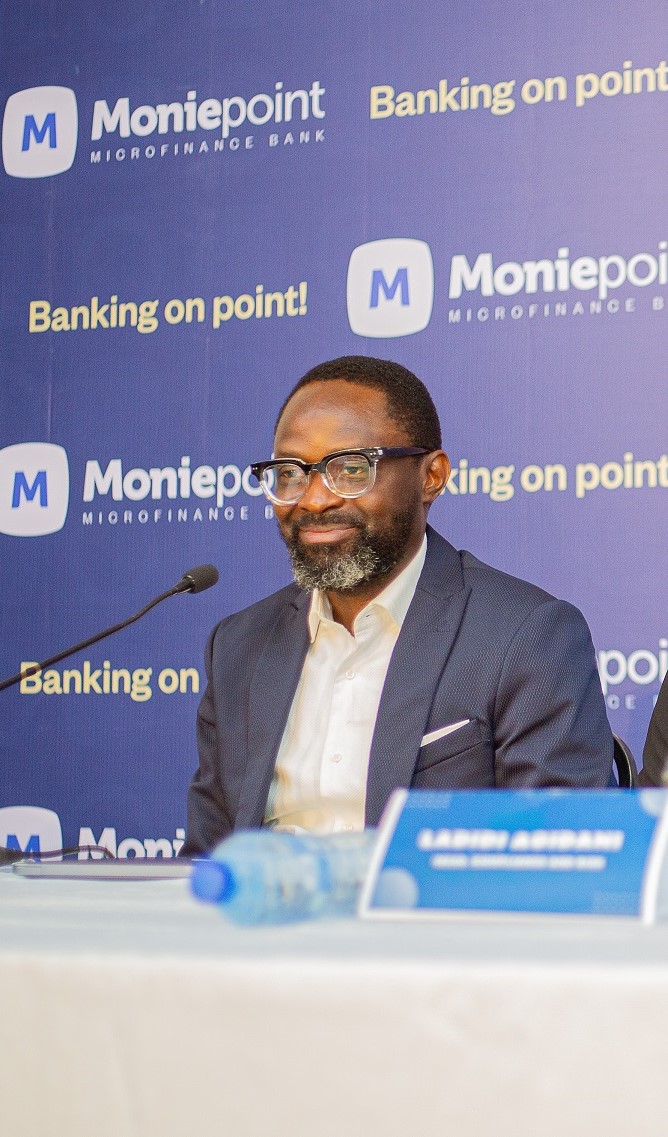
Moniepoint MFB, Africa’s fastest-growing financial institution according to the Financial Times, has relaunched its personal banking referral program to enrich its customers as they enjoy the Moniepoint experience with family and friends.
The referral program is designed to reward users every time their friends or family perform a transaction on Moniepoint after signing up with their referral link. Through this, millions of people will earn well over N100,000 from referrals alone.
Moniepoint’s technology has powered over 3 million businesses across Nigeria, and with its reliable infrastructure now in the hands of personal users, it now enables seamless payments for many across the country. With referrals linked to transfers, a leading payment method for many in Nigeria, this referral program will provide extra income for many of its users.
Commenting on this development, Babatunde Olofin, Managing Director of Moniepoint MfB, noted that the customer-centric referral program supports the bank’s focus on driving financial inclusion while helping to accelerate its vision of creating a society where everyone experiences financial happiness.
“We know how important seamless financial transactions are, and we’ve seen first-hand the power of peer to peer recommendations and how word-of-mouth referrals can grow a customer base and increase revenue. Given our strong customer obsession and the strings of commendations which we have received that validate the work we do in providing peerless financial services, we want to provide our customers with rewards even as they continue to share these positive experiences with the Moniepoint brand,” Olofin said.
Each current and new personal account holder has been provided with a unique referral code which is identical to their account username and is visible in the Referral Section on the Personal Banking app. This code/link can be shared with anyone, who, upon signing up and transacting with the Moniepoint Personal Banking app, will contribute to rewards for the referrer.
For every outward interbank transaction conducted by referred customers in the next 12 months, participants will receive a commission. This transparent and straightforward incentive structure ensures that participants reap tangible benefits for actively promoting the Moniepoint Personal Banking app. Referrers can also track the total earnings and referral history from their referral in the “Earn from Referrals” icon in the app while earnings can be transferred to the user’s main account once a minimum of N50 has been earned.
Moniepoint MFB has worked with the Central Bank of Nigeria to strengthen the security of the banking industry in the past month, pausing its onboarding. It has now resumed signing up users with a commitment to providing its users with a secure, convenient and rewarding financial experience. The referral program is just one of the many ways the company is innovating to empower Nigerians and make financial services more accessible.
It will be recalled that Moniepoint MFB has in the last few months demonstrated peerless commitment to customer focus and satisfaction as evidenced by the opening of its Lekki Admiralty Road office, as well as the roll out of a USSD code, *5573# which offer users a fast, secure, and user-friendly platform to conduct their banking activities with ease.
According to media reports, Moniepoint Inc. currently processes the majority of the Point of Sales (POS) transactions in Nigeria through its subsidiaries, processing over $182 billion in annualized TPV and as a profitable enterprise, it is Africa’s largest fintech by transaction volume.
Bank
Alpha Morgan to Host 19th Economic Review Webinar

Alpha Morgan to Host 19th Economic Review Webinar
In an economy shaped by constant shifts, the edge often belongs to those with the right information.
On Wednesday, February 25, 2026, Alpha Morgan Bank will host the 19th edition of its Economic Review Webinar, a high-level thought leadership session designed to equip businesses, investors, and individuals with timely financial and economic insight.
The session, which will hold live on Zoom at 10:00am WAT and will feature economist Bismarck Rewane, who will examine the key signals influencing Nigeria’s economic direction in 2026, including policy trends, market movements, and global developments shaping the local landscape.
With a consistent track record of delivering clarity in uncertain times, the Alpha Morgan Economic Review continues to provide practical context for decision-making in a dynamic environment.
Registration for the 19th Alpha Morgan Economic Review is free and can be completed via https://bit.ly/registeramerseries19
It is a bi-monthly platform that is open to the public and is held virtually.
Visit www.alphamorganbank to know more.
Bank
Separating Fact from Confusion: What Nigerians Need to Know About the 7.5% VAT on Banking Service Fees
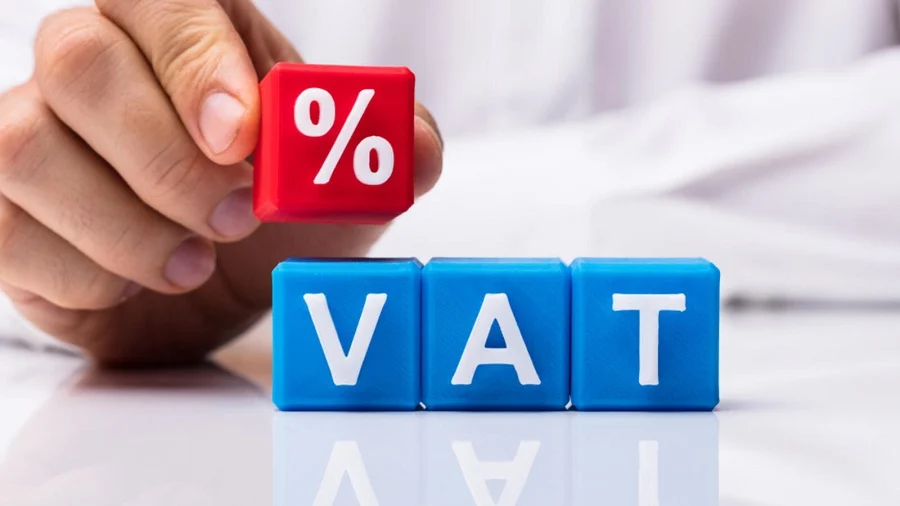
In recent weeks, digital-banking customers and social media, especially on Twitter have raised concerns about deductions labelled as “VAT” on transfers and other charges.
Some dangerously false narratives, which when you take a critical look, you’ll clearly see that they have been orchestrated and sponsored by malicious elements, have given the impression that the 7.5% Value Added Tax (VAT) is a new or arbitrary charge introduced by fintechs, or that it applies to the amounts customers send. These claims are misleading and deserve careful clarification which is the purpose of this piece.
First, it’s important to understand how VAT works in Nigeria’s financial sector today. VAT on fees and charges for financial services has long been part of Nigeria’s tax system. The then Federal Inland Revenue Service (FIRS) had issued information circulars on March 31, 2021 where it stated that VAT on Financial Services (Circular No. 2021/04) that most fees, commissions, and charges by financial institutions (banks, insurance companies, brokers) are subject to 7.5% VAT.
This justifies a recent advertorial the Nigeria Revenue Service (NRS) which stated unequivocally that VAT was not newly introduced on banking service charges by recent tax reforms, and that it did not impose a new tax obligation on customers in that regard.
However what was left unsaid in that publication was that on the 12th of December, the tax agency had written to all financial institutions and payment gateways based on past meetings with operators that following from the new Tax Act, they were reminded of their mandatory obligations to collect, deduct and remit VAT at the prescribed rate.
The Agency then gave an 18- day grace period to all players to configure and align their systems while directing full compliance with the directive with effect from January 19, 2026. And so, some fintechs sent messages to their customers in the spirit of clarity and transparency.
It must be said that what has changed is that in a bid to widen the tax net, microfinance banks and fintechs who were not obligated to deduct and remit said VAT before now, have now become compelled to do so. The enforcement and standardised collection of VAT across banks and fintech platforms including mobile transfers, USSD transaction fees, and card issuance fees with compliance deadlines issued by tax authorities. So why anyone would vilify any financial institution obeying the laws of the land beats my imagination.
For those who have raised questions around transparency and wrongly suggesting that fintechs are suddenly imposing new, unexplained costs on users – as it has been explained above, this is a matter of regulatory compliance, not a lack of transparency or customer exploitation. These VAT deductions are not new fees created by the companies themselves, and providers are not arbitrarily raising their prices.
In closing, two things that everyone must bear in mind as we move forward in this new tax climate – all stakeholders including fintech platforms and regulators must communicate better and clearly. Nigerians must refrain from peddling unsubstantiated claims and malicious narratives, it has no benefits for anyone and erodes trust in systems.
Bank
FirstBank Introduces Exclusive 500-Seater Bleacher at Carnival Calabar & Festival 2025
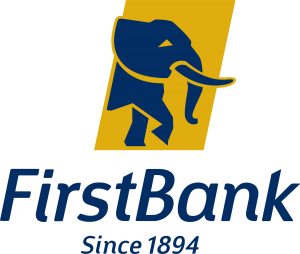
FirstBank Introduces Exclusive 500-Seater Bleacher at Carnival Calabar & Festival 2025
Lagos, 26 December 2025 – FirstBank, West Africa’s premier financial institution and financial inclusion services provider, has officially announced its sponsorship of the Carnival Calabar & Festival 2025, unveiling a landmark addition set to redefine the carnival experience — the first-ever private premium seating area at the event.
The highlight of FirstBank’s participation is the construction of a 500-seater premium bleacher, designed to provide comfort, safety, and an elevated viewing experience for carnival enthusiasts.
Speaking on the sponsorship, the Acting Group Head Marketing and Corporate Communications, FirstBank, Olayinka Ijabiyi, noted that the carnival aligns with the Bank’s First@Arts initiative, a platform dedicated to supporting the creative arts value chain across Nigeria. He said, “We recognise the transformative power of the arts, including carnivals, in inspiring people and strengthening national unity. For more than 131 years, we have supported platforms that promote self-expression, social reflection and cultural exchange. Our investment in the Carnival Calabar & Festival demonstrates our commitment to preserving the nation’s rich cultural heritage through First@Arts.”
“As part of our sponsorship this year, we are introducing the first-ever private 500-seater premium bleacher to further elevate the carnival experience. This exclusive seating is designed to provide exceptional comfort and an unforgettable viewing experience for attendees,” Ijabiyi added.
The Chairman of the Cross River State Carnival Calabar Commission, Gabe Onah, also commented on FirstBank’s sponsorship. “FirstBank’s involvement is a strong demonstration of private-sector support for culture and tourism. This partnership not only enhances the overall quality of the carnival but also strengthens its global appeal,” he said.
The Carnival Calabar & Festival 2025 is officially marketed by Okhma Global Limited, the appointed Official Marketer responsible for brand partnerships, promotional engagements, and ticket sales. Okhma Global Limited has partnered with the Cross River State government in delivering Carnival Calabar & Festival for over ten years, playing a key role in strengthening the carnival’s commercial growth and global visibility.
-

 celebrity radar - gossips6 months ago
celebrity radar - gossips6 months agoWhy Babangida’s Hilltop Home Became Nigeria’s Political “Mecca”
-

 society6 months ago
society6 months agoPower is a Loan, Not a Possession: The Sacred Duty of Planting People
-

 society5 months ago
society5 months agoReligion: Africa’s Oldest Weapon of Enslavement and the Forgotten Truth
-

 news6 months ago
news6 months agoTHE APPOINTMENT OF WASIU AYINDE BY THE FEDERAL GOVERNMENT AS AN AMBASSADOR SOUNDS EMBARRASSING

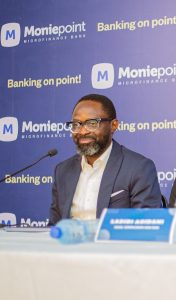



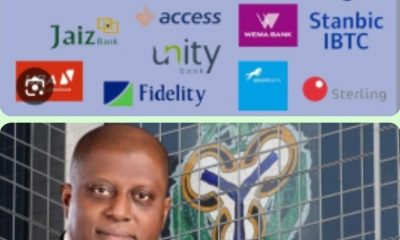




You must be logged in to post a comment Login